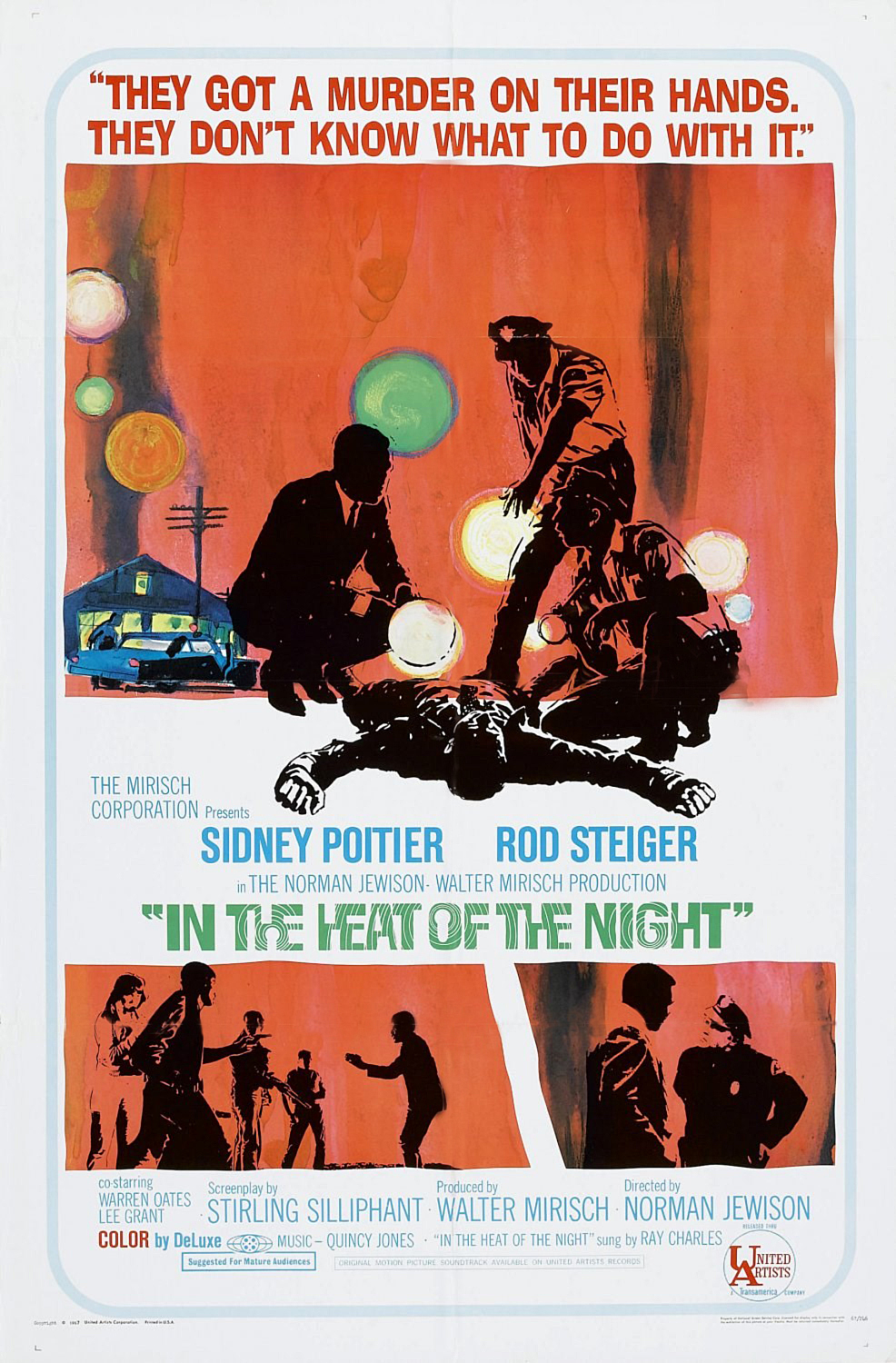
- Golden Globe Awards
1968 – Drama: In the Heat of the Night
1968 was Sidney Poitier’s big year: he was the protagonist of two films that made the cinematic history and were both nominated by the HFPA for Golden Globes: In Heat of the Night and Guess Who’s Coming to Dinner. Never black and white relations in America were dissected and analyzed as in that season, thanks to those two great films, and of course to the social and political environment, ready for a serious discussion.In the Heat of the Night won the Globe for Best Picture – Drama: it received seven nominations, and three wins (Film, Best Script by Stirling Silliphant and Best Actor – not Poitier, who was nominated, but Rod Steiger. The Awards were held once again at the Ambassador Hotel’s Cocoanut Grove, on February 12, 1968. It was a very high-profile edition, with soon to be classics Bonnie and Clyde, In Cold Blood, The Graduate, Camelot and The Taming of the Shrew also in the mix.In the Heat of the Night, directed by Norman Jewison (nominated to a Globe – Mike Nichols won for The Graduate) and based on the 1965 novel by John Ball, follows a black Chicago police detective, Virgil Tibbs (Poitier) involved in the investigation of the murder of a prominent businessman in the racially hostile Southern town of Sparta, Mississippi, who finds himself persecuted by the local white police chief Gillespie (Steiger). The film was immediately appreciated for the sincerity of his social commentary, but also as an involving thriller whose tension was heightened by great acting and music (by Quincy Jones). Haskell Wexler’s brilliant cinematography has also often been mentioned in the reviews of the film, which subsequently won four Academy Awards (including best picture); the Oscar ceremony that year was postponed following the assassination of Martin Luther King, Jr.The film was followed by two sequels, They Call Me Mister Tibbs! in 1970, and The Organization in 1971. In 1988, it also became the basis of a television series of the same name, which received seven Golden Globe nominations. In 2002, the film was selected for preservation in the United States National Film Registry of the Library of Congress for its “cultural and historical significance”. Also thanks to the 1968 Golden Globe, Sidney Poitier went on to be regarded as the single African-American actor who opened many doors to other great black actors and directors to come.

